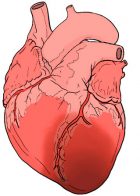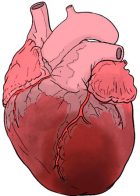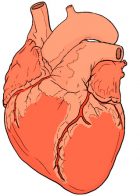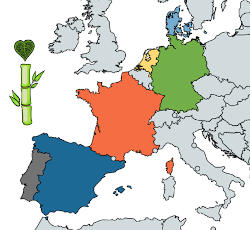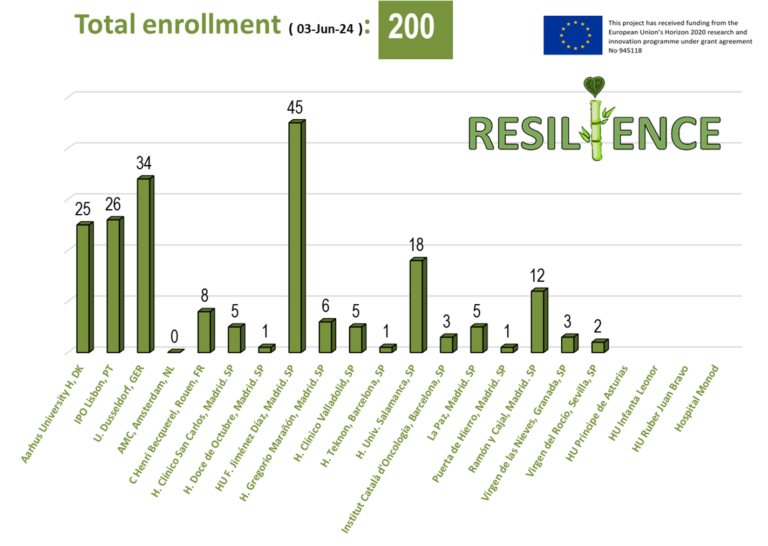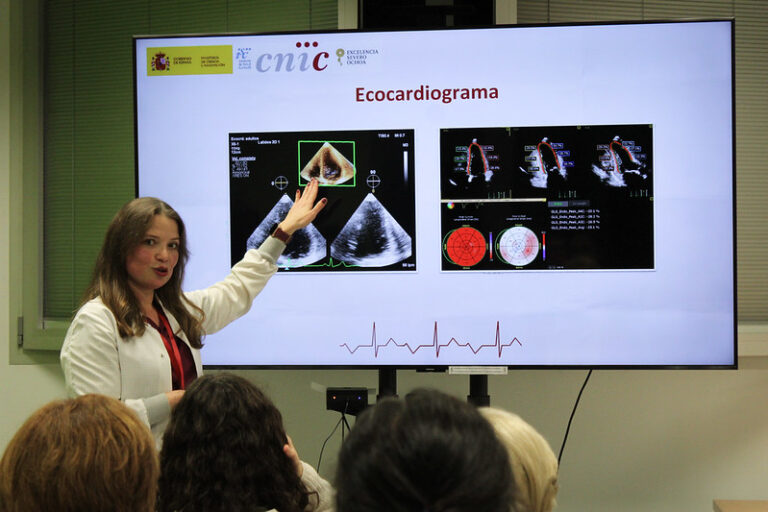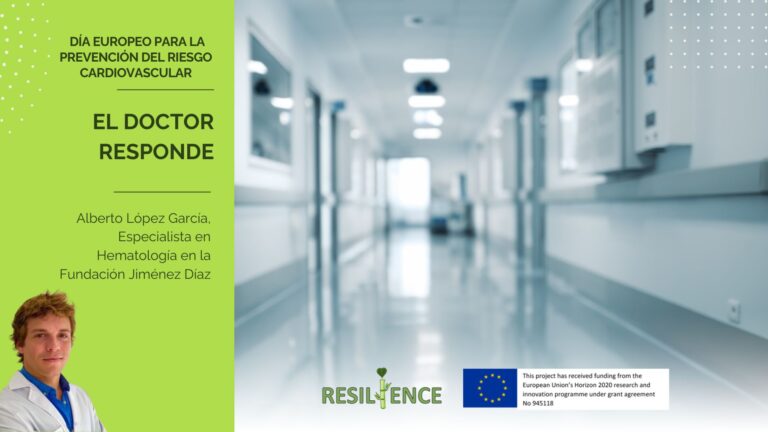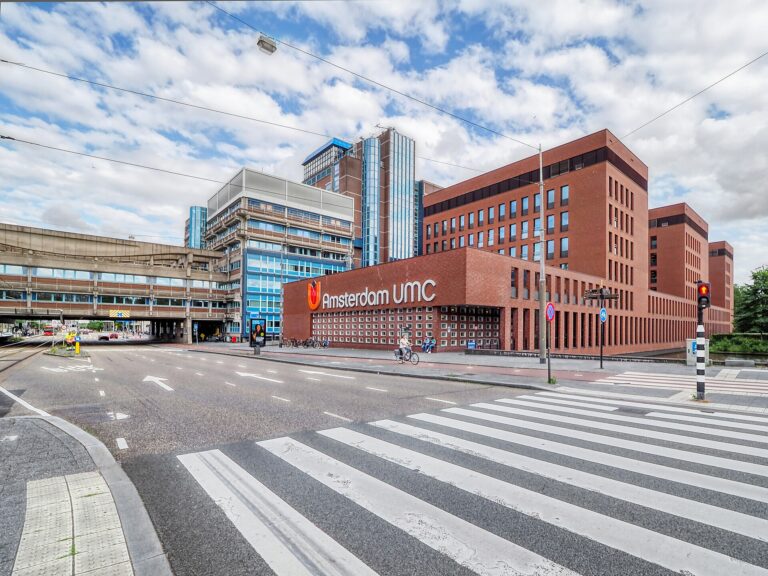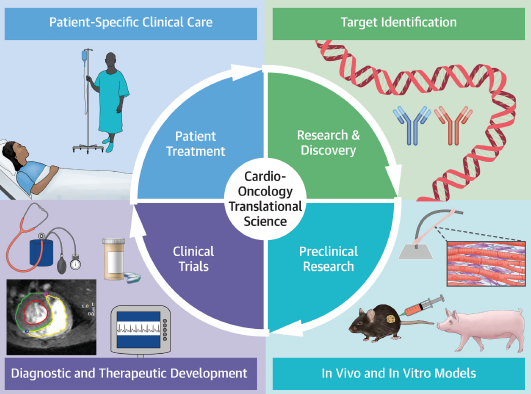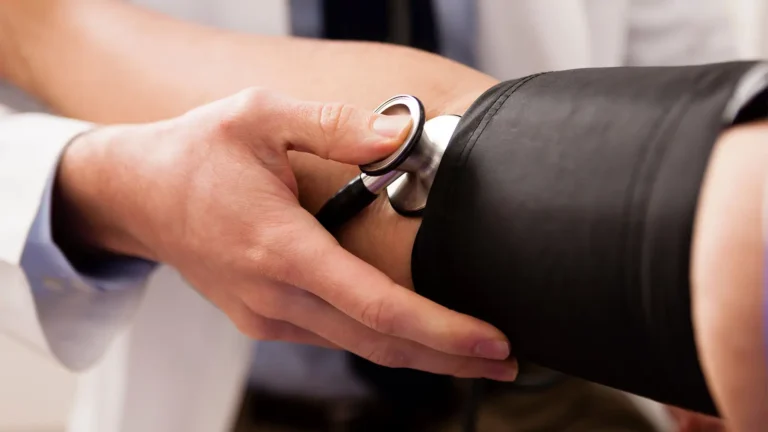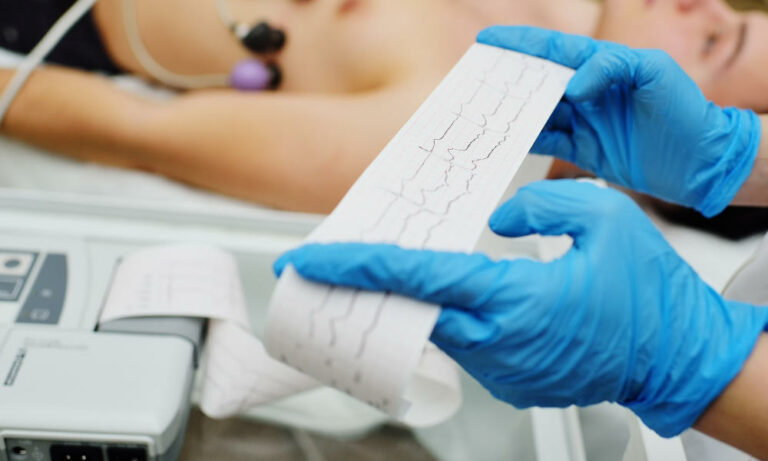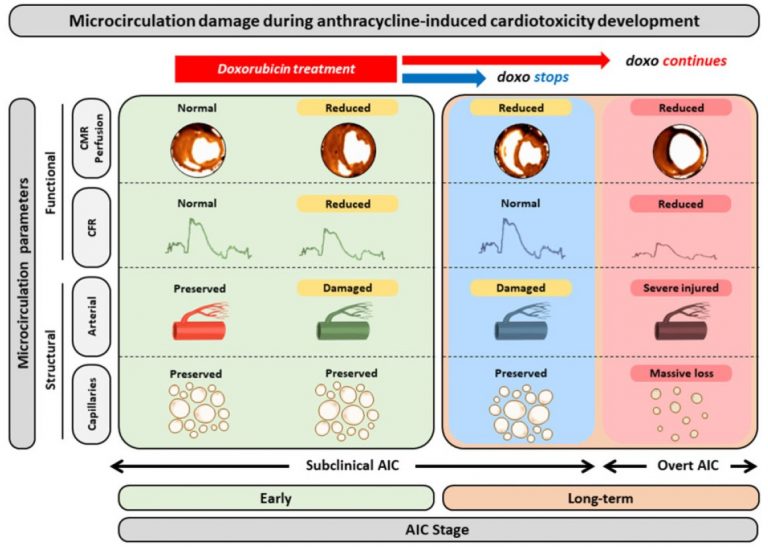Due to the commemoration of the European Day for the Prevention of Cardiovascular Risk on March 14th we have launched a campaign on our Instagram to collect your questions and concerns about this topic. Doctor Alberto López, member of our RESILIENCE team, have answered them.
Dr. López is an expert in Hematology at the Hospital Universitario Fundación Jiménez Díaz and he is specialized in the diagnosis and treatment of patients with lymphoma and chronic lymphocytic leukemia.
We want to share the topics that have been raised and we do encourage you to listen to his answers on Instagram, as well as to participate with your questions in the oncoming open RESILIENCE interviews.
How important is physical exercise in cardiovascular health?
Physical exercise is not only important when it comes to preventing cardiovascular risk factors. In addition to having an impact on the heart, it also has an impact on the vessels, reducing cholesterol and glucose levels, this is important to face a neoplasia or a malignant process. A patient that has good physical shape and good muscle tone might potentially develop fewer adverse effects; many of which have to do with cardiovascular health, since the treatments we use are usually toxic.
What is the direct relationship between cholesterol and cardiovascular diseases?
The direct relationship that cholesterol can have as a cardiovascular event is the formation of atheroma’s plaques in the vessels that will prevent blood flow. In patients with lymphoma or cancer patients, it is important to have, among others, these factors controlled when facing therapies, as they will produce a greater risk of thrombotic symptoms.
What are the main cardiovascular risk factors?
The main cardiovascular risk factors are modifiable. As risk factors we have high blood pressure, the development of cholesterol, high sugar (known as diabetes), sedentary lifestyle and obesity; in addition to toxic habits, such as smoking or alcohol consumption. It is important, before starting an oncological treatment, or in the general population, to have all these factors well controlled in order to develop fewer adverse effects when giving oncological therapy.
What are the warning signs for cardiovascular disease?
One of the warning signs that might tell us that something is not going well with our cardiovascular health may be the presence of headache, an increase in the diameter of our legs, swelling throughout the day, or the fact of constantly having the urge to drink and urinate, which may indicate the presence of already established diabetes. If we have any of these signs or symptoms, we should consult our primary care doctor.
What medical tests should be done to evaluate cardiovascular health?
The ideal tests to evaluate cardiovascular health and risk factors are carried out by the primary care doctor: measuring blood pressure, an electrocardiogram and a complete blood test, that includes glucose and a lipid profile. These tests can help us know the cardiovascular risk that each patient may have.
How can diet help cardiovascular health?
Diet plays a fundamental role in cardiovascular health for several reasons: due to the glycemic levels of the foods we eat and especially due to cholesterol levels. A Mediterranean diet is an ideal diet to keep under control these cardiovascular risk factors and, above all, always support them by physical exercise.
How does stress influence cardiovascular health?
Stress, among other causes, has an impact on cardiovascular health, both direct and indirect. With stress, more cortisol and more adrenaline are secreted, which increases blood pressure and, indirectly, we also increase toxic habits, such as smoking or compulsive eating. Therefore, stress could be considered as a cardiovascular risk factor that might be taken into account.
Thank you very much to everyone for sending us your questions and to Doctor Alberto López for his answers!

